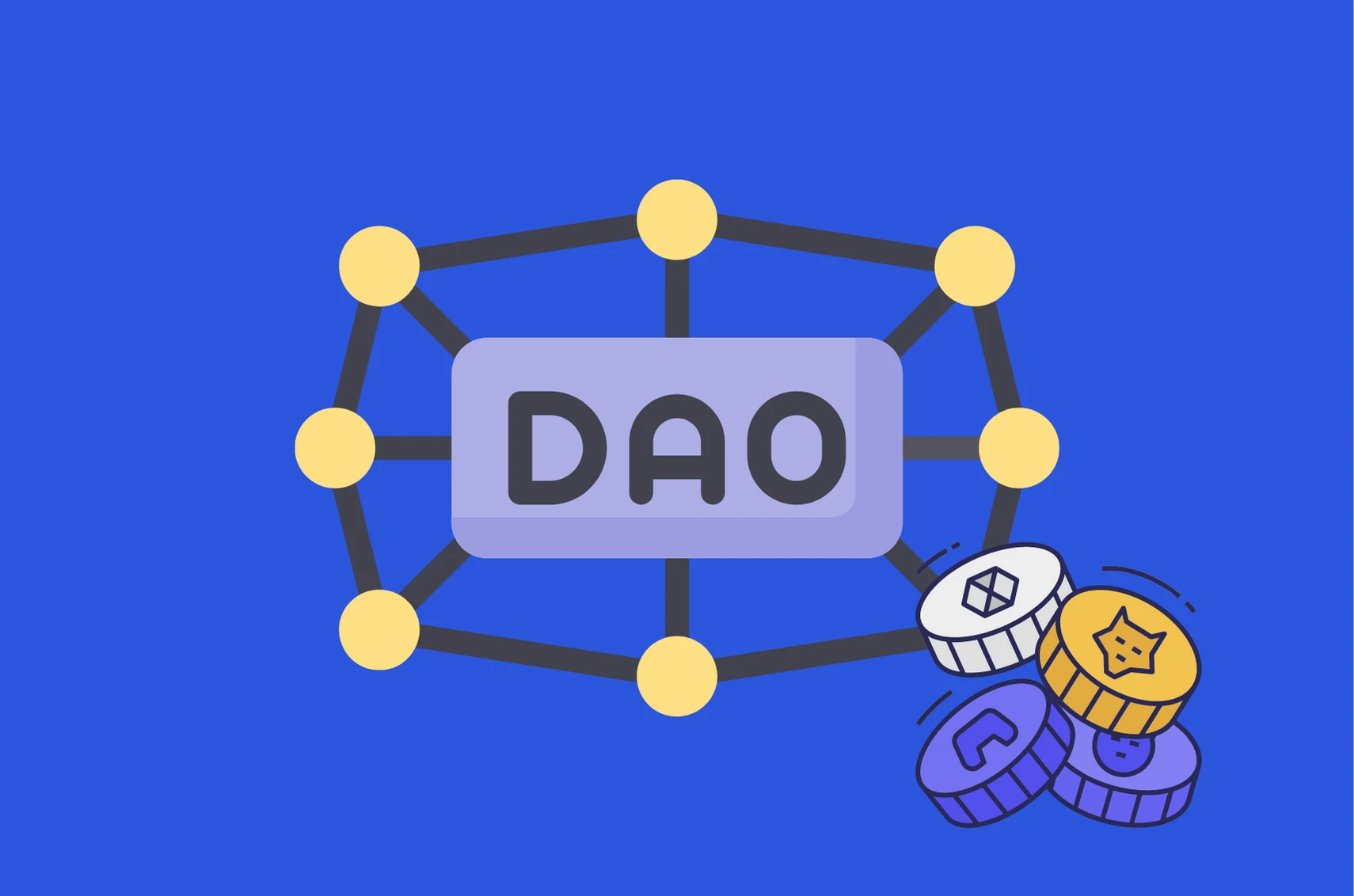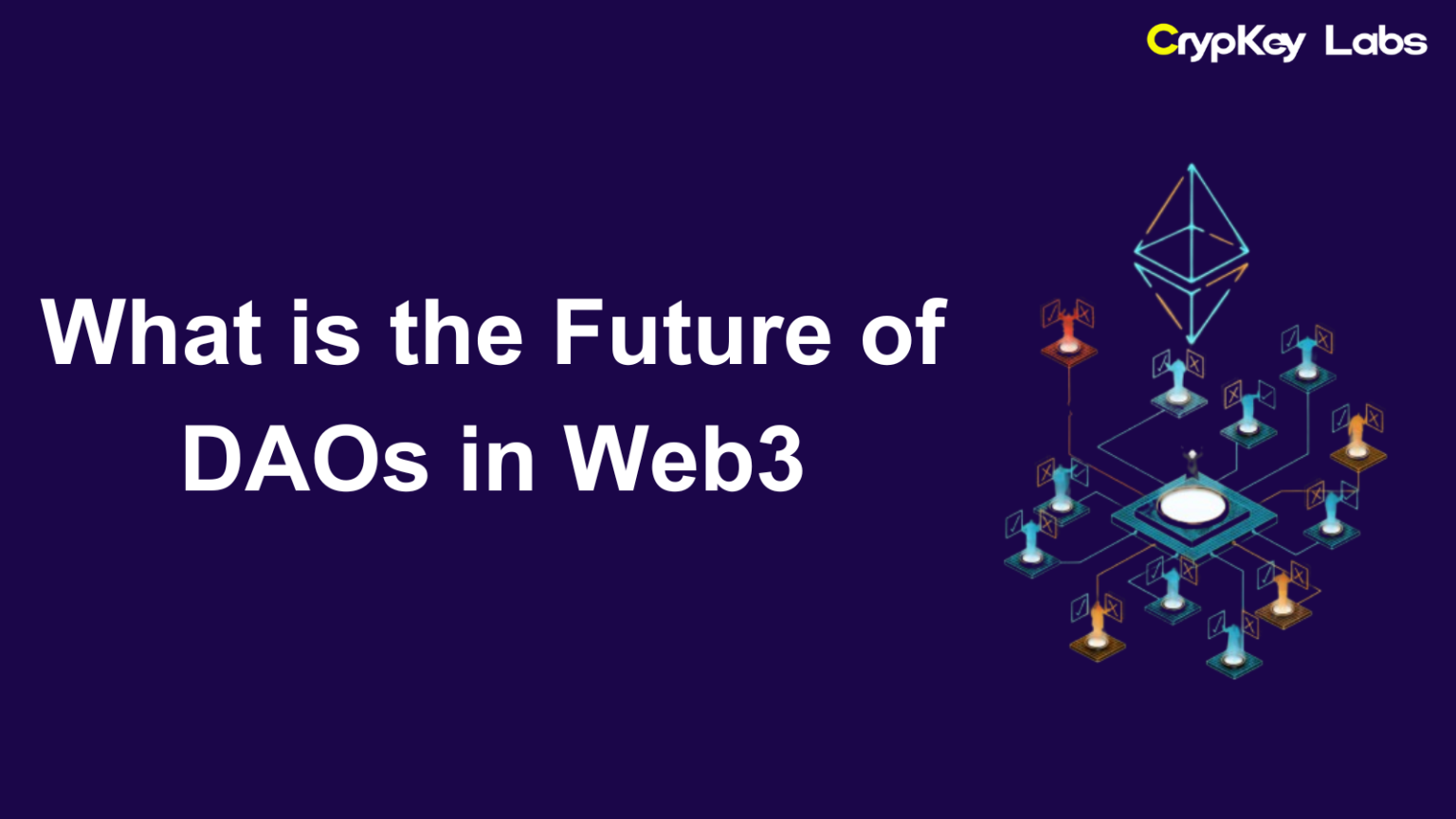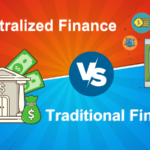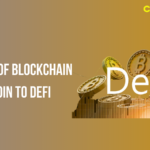As Web3 continues to redefine the internet, one of its most revolutionary ideas is the Decentralized Autonomous Organization (DAO). These community-led entities are not just a passing trend; they’re becoming central to the future of how organizations operate in the decentralized world. But what exactly is the future of DAOs in Web3, and how will they evolve in the coming years? In this blog, we’ll explore the growing influence of DAOs and their potential to reshape governance, industries, and our daily lives.
The Rise of DAOs in Web3
DAOs are a natural evolution of the Web3 movement, built on the foundation of blockchain technology. They represent the core principles of decentralization, where power is shifted away from central authorities and given back to the people who make up the organization.
In Web2, companies and communities are often governed by a small group of individuals or executives. DAOs flip this structure by enabling community-driven governance, where decisions are made through consensus, often by voting, and all operations are encoded in smart contracts. The community’s involvement ensures transparency and minimizes the risk of corruption or biased decision-making.
Some key examples of DAOs that have already seen success include:
MakerDAO, which governs the creation of the DAI stablecoin.
Uniswap, a decentralized exchange governed by its token holders.
These DAOs have grown into massive organizations, showing how effective this model can be in the Web3 space.
How DAOs Work
The structure of a DAO is simple in theory but highly impactful in practice. A DAO operates through smart contracts, which are self-executing contracts with the terms of the agreement written directly into code. These contracts automate processes, like voting or distributing funds, removing the need for intermediaries like managers or CEOs.
Here’s a quick breakdown of how a typical DAO works:
Token Holders: Members of a DAO typically hold tokens that represent their stake or influence in the organization. These tokens can be earned or purchased and are used to vote on proposals.
Proposals: Any member can submit a proposal for a decision. This could range from allocating funds for a project to changing the direction of the organization.
Voting: Token holders cast votes on these proposals, with each vote being proportional to the number of tokens held.
Execution: If a proposal passes, the smart contract automatically executes the decision. This might involve transferring funds or implementing a new policy.
The beauty of DAOs is that everything is transparent. All transactions, votes, and decisions are recorded on the blockchain, meaning anyone can verify what’s happening within the organization.
Why DAOs Matter in Web3
DAOs are fundamental to Web3 because they embody the principles of decentralization and community governance. They strip away the need for traditional corporate structures, where power is held by a select few, and instead distribute it among all participants.
In Web3, DAOs have become the backbone of decentralized projects, allowing communities to have a direct say in the development and direction of platforms. This level of transparency and involvement is a significant shift from traditional governance models, where decisions are often made behind closed doors.
By allowing users to be both stakeholders and decision-makers, DAOs create a more democratic system where everyone’s voice is heard. This concept is not just limited to blockchain projects; it has the potential to disrupt industries like finance, entertainment, and even politics.
Challenges Facing DAOs Today
While DAOs offer a lot of promise, they are not without their challenges. Here are some of the hurdles DAOs currently face:
1. Legal and Regulatory Uncertainty: DAOs operate in a gray area when it comes to legal recognition. Most countries don’t have clear laws around DAOs, and this creates complications when dealing with taxes, liabilities, and contracts. Without a formal legal structure, it can be difficult for DAOs to interact with the traditional world.
2. Scalability Issues: As DAOs grow larger, decision-making can become cumbersome. In organizations with thousands of token holders, reaching consensus on proposals can be slow, especially if participation is low. DAOs need more efficient voting systems to manage large communities effectively.
3. Security Concerns: Since DAOs rely on smart contracts, they are vulnerable to coding errors and hacks. Any flaw in the smart contract code can be exploited, leading to loss of funds or manipulation of the system. Security audits and continuous improvements in contract design are crucial to the long-term success of DAOs.
4. Governance Fatigue: In theory, everyone in a DAO can participate in decision-making, but in practice, people may not have the time or expertise to vote on every proposal. This can lead to low participation rates, with only a few members making decisions, which defeats the purpose of decentralization.
The Future of DAOs in Web3
As Web3 matures, so too will DAOs. Here’s how they might evolve in the near future:
1. Increased Use Across Industries: DAOs won’t be confined to the world of blockchain and crypto. They have the potential to revolutionize industries like finance, gaming, art, and social platforms. For example, gaming DAOs could allow players to govern the future development of a game, while art collectives could vote on how funds are distributed among creators.
2. Integration with AI: As artificial intelligence (AI) technology improves, we may see its integration within DAOs. AI could be used to assist in decision-making, analyze community sentiment, or automatically propose solutions based on real-time data. This could help streamline operations and make DAOs more efficient.
3. Legal Frameworks: Governments are starting to take note of DAOs, and we could see the creation of legal frameworks that recognize DAOs as legitimate entities. This would allow DAOs to interact with traditional financial and legal systems while still maintaining their decentralized nature.
4. Improved Governance Models: The future of DAOs will likely see more sophisticated governance models. For instance, quadratic voting, where the cost of voting increases with the number of votes cast, could help ensure that the voices of smaller stakeholders are heard. Additionally, liquid democracy, where users can delegate their votes to others, could make decision-making more scalable and efficient.
Mass Adoption of DAOs
For DAOs to reach their full potential, they need to be adopted by the mainstream. This will depend on several factors:
Education: The concept of DAOs is still new to most people. To drive mass adoption, the general public needs to be educated on what DAOs are and how they can benefit from them. Clear and simple communication about the advantages of decentralized governance will be key.
User Experience: Right now, interacting with DAOs can be complicated for people who are not familiar with blockchain technology. As the user interfaces for DAOs improve, and as access to Web3 tools becomes more intuitive, more people will be willing to participate.
Real-World Use Cases: DAOs will need to show real-world success stories that people can relate to. When individuals see how DAOs can enhance areas like community decision-making or even charitable organizations, they will be more inclined to join and support DAOs.
The Impact of DAOs on Society
The rise of DAOs could have profound implications for society. By decentralizing governance, DAOs could challenge the traditional hierarchical structures that dominate businesses, politics, and economics. Here are some potential impacts:
New Governance Models: DAOs could inspire new forms of governance beyond the digital world. Imagine a city run by a DAO, where residents vote directly on public policies using a transparent blockchain system. This could lead to more accountable and efficient governance.
More Equitable Organizations: By giving everyone a voice, DAOs could help level the playing field in organizations. This could reduce inequality, both within businesses and across industries, as decisions are made collectively rather than by a small group of executives.
Decentralized Workplaces: DAOs could also lead to the rise of decentralized workplaces, where employees have more control over their work environment and decision-making processes.
Conclusion
The future of DAOs in Web3 is incredibly bright. As the technology behind DAOs continues to improve, and as more people become aware of their potential, DAOs will likely become a central part of how we organize and govern in the digital age. Whether it’s in finance, gaming, or even politics, DAOs have the power to disrupt traditional systems and create a more decentralized, transparent, and equitable future.
If you’re curious about DAOs, now is the time to start exploring this exciting space. The future of Web3 is decentralized, and DAOs are at the heart of this revolution.







